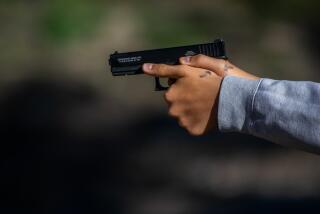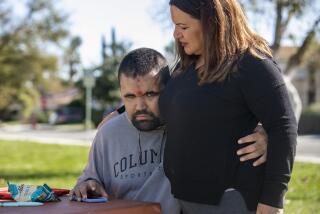For San Bernardino shooting victim, the hardest part of recovery is fully conveying her gratitude
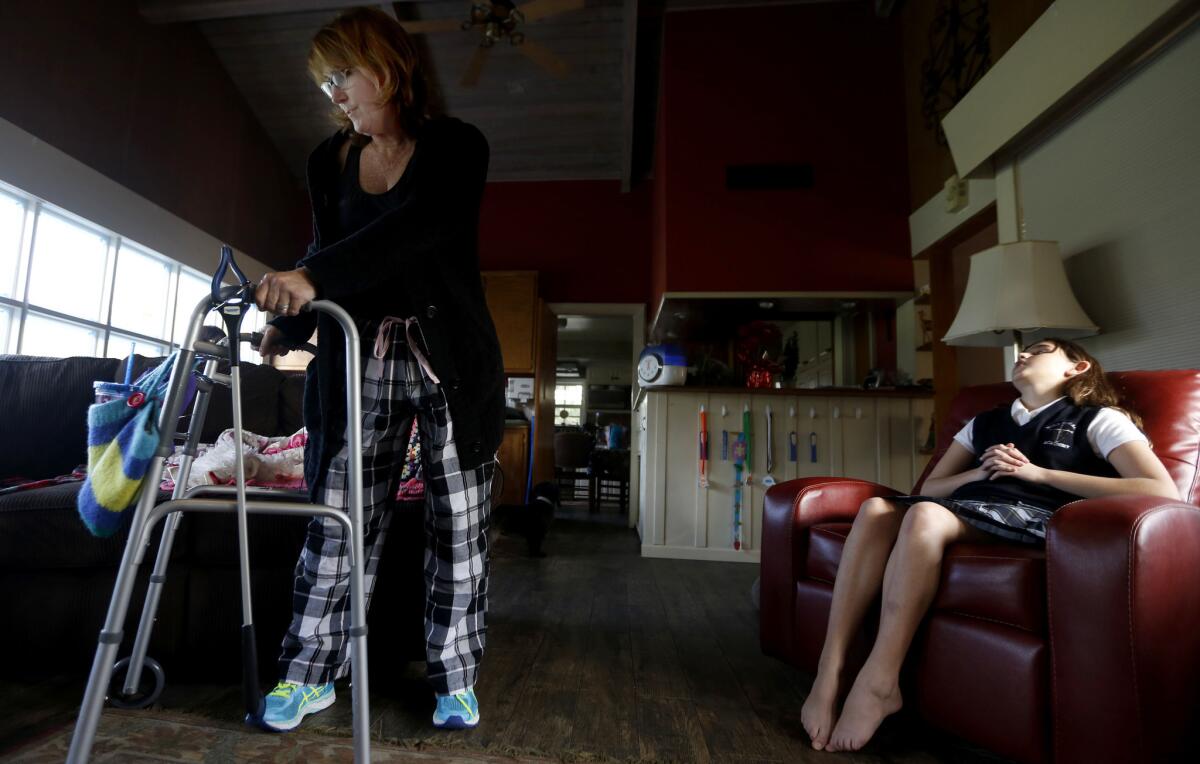
- Share via
She spread her sneakers the width of her shoulders as she struggled to take a step just inches from the security of her walker. Her fingers wrapped around the kitchen sink to hold on tight.
Two stabilizing rods protruding from her hips slowed her down, and she winced as she dipped into squats like an ungainly ballerina.
Julie Swann-Paez, a mother to three children, doesn’t dwell on the day that led her here. Her dreams don’t take her to the room where it happened.
That room was the conference room at the Inland Regional Center in San Bernardino, where the 50-year-old Swann-Paez found herself curled on the floor, hugging her knees as bullets tore through the air and into bodies.
Someone walked up behind her and fired a bullet through her pelvis, shattering it into pieces. Blood and urine soaked her pants. She felt around for wounds and tried hard not to sink out of consciousness.
Three minutes later, Swann-Paez was shot in the pelvis once more.
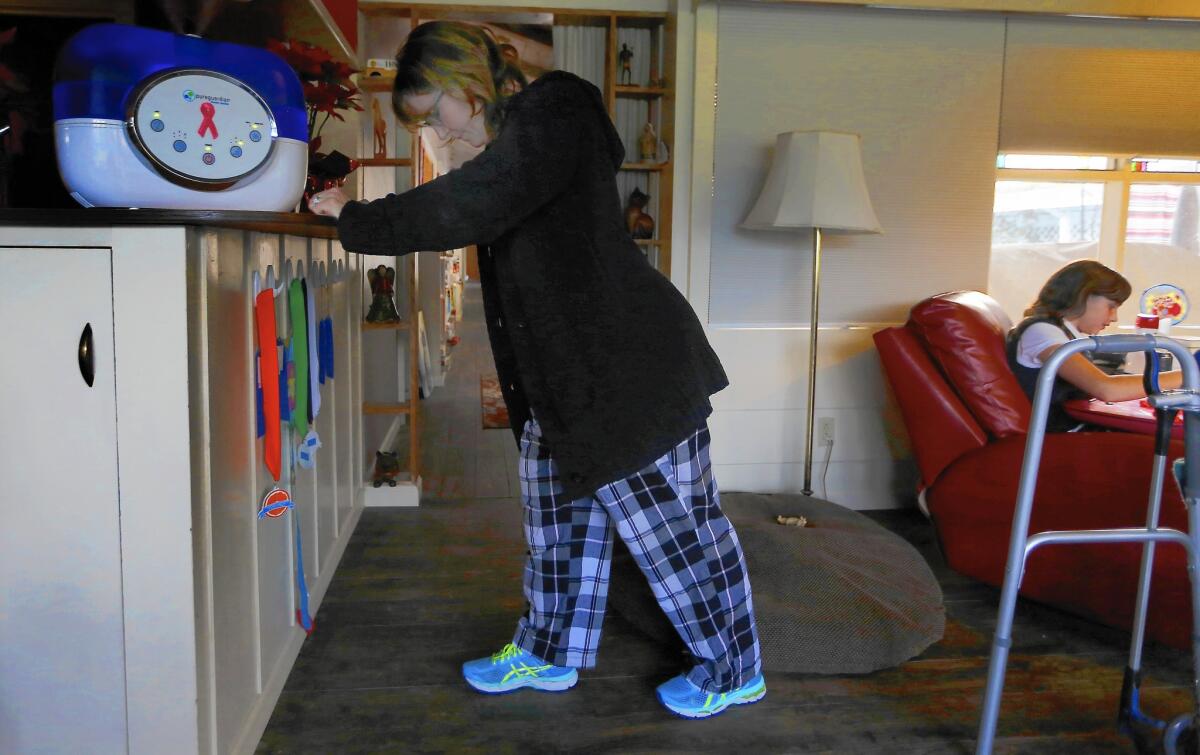
See the most-read stories this hour >>
She thought of her children and her husband and sent them a text: “Love you guys. Was shot.”
Two months after 14 people were killed and 22 wounded in the worst terrorist attack in the United States since 9/11, Swann-Paez has endured four hours of surgery and a month in a hospital and rehab. She spends her days practicing walking and building strength in her core. The furniture decorating her home now doubles as exercise equipment.
She works her way back to the living room, where her physical therapist watches from the doorway, warning her not to overdo it. Her arms find the bar top in front of her and she braces against the counter, lowering into a push-up position while teetering on her toes.
“My son says, ‘Well, you need to strengthen your core, Mom,” Swann-Paez says. “And I say, ‘Well, you know, there’s a little problem in the abdominal area here.’”
She laughs and looks down at the rods tugging at her pajama pants.
::
After a light breakfast potluck of muffins and doughnuts, the San Bernardino County health department employees gathered at the Inland Regional Center on Dec. 2 took a break. It was around 11 a.m. Some headed toward the bathrooms. That would be a stroke of luck.
Swann-Paez and a few of her co-workers decided to grab their cameras and take pictures in front of the Christmas tree.
As they struck their first pose, Swann-Paez heard a loud noise near the back door.
“That’s when I saw him come in and I got down,” she said. “I thought, ‘This couldn’t be.’ I thought it was a drill.”
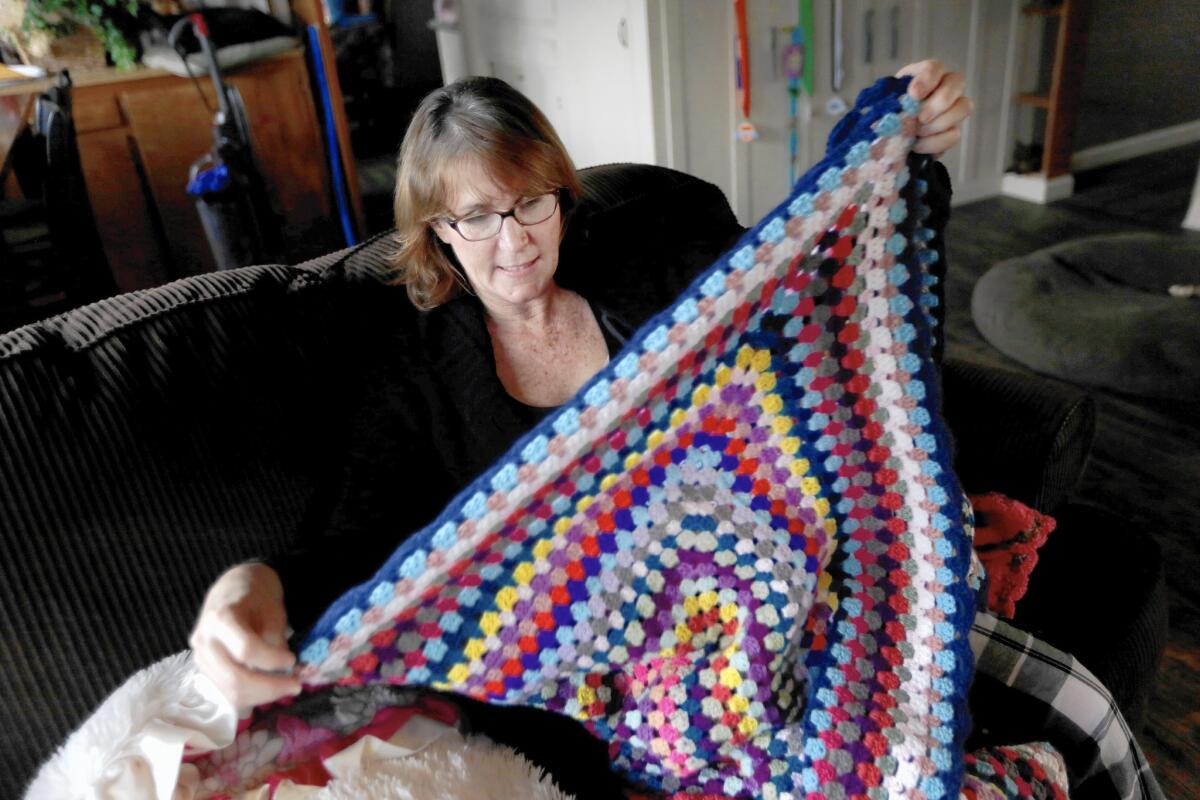
The shooter who walked into the conference room had the build of a man, Swann-Paez said. Authorities identified Syed Rizwan Farook and his wife, Tashfeen Malik, as the perpetrators of the attack. Swann-Paez knew Farook in a casual way, but the gunman was covered in black from head to toe and wearing a mask, she said.
Whoever was shooting didn’t say a word. It wasn’t until Swann-Paez’s son, Nick Paez, visited her in the hospital later that day that she learned who was behind the attack.
“They think it’s your co-worker,” Nick Paez told his mother.
“That doesn’t make sense,” she replied. “They were congratulating him for having a baby.”
She spent those first days after the shooting connected to a morphine drip. One of the bullets had ruptured her bladder. For about a week she couldn’t drink water.
On a Sunday night, she was handed her first cup after being shot. She clutched it, cool to her face.
“She was so happy,” Paez, 26, said. “She looked like she was going to Disneyland, the smile she had on her face.”
::
See more of our top stories on Facebook >>
“I’m honestly just not used to being cooped up,” Swan-Paez says, adjusting herself on the recliner on a recent afternoon. “I am used to being on the go.... Now I’m stuck. Can’t move, can’t get out of bed, can’t lay on your side. And you know … it’s very isolating.”
Swann-Paez had been the family manager, handling household errands and making sure everyone else was doing fine. Before, she used to struggle with accepting help even from her husband, Jesus. But after she was shot, she had to rely on him as the easiest of tasks — rolling over, walking down the hall — became grueling challenges.
She takes Tylenol to endure the pain; a muscle relaxant to sleep through the night. In her first weeks at home, Jesus Paez lifted her legs onto their bed when it was time to turn in for the night. In rehab, he helped her bathe and get to the bathroom. He still picks things up off the floor and ties her shoes because she has difficulty bending down.
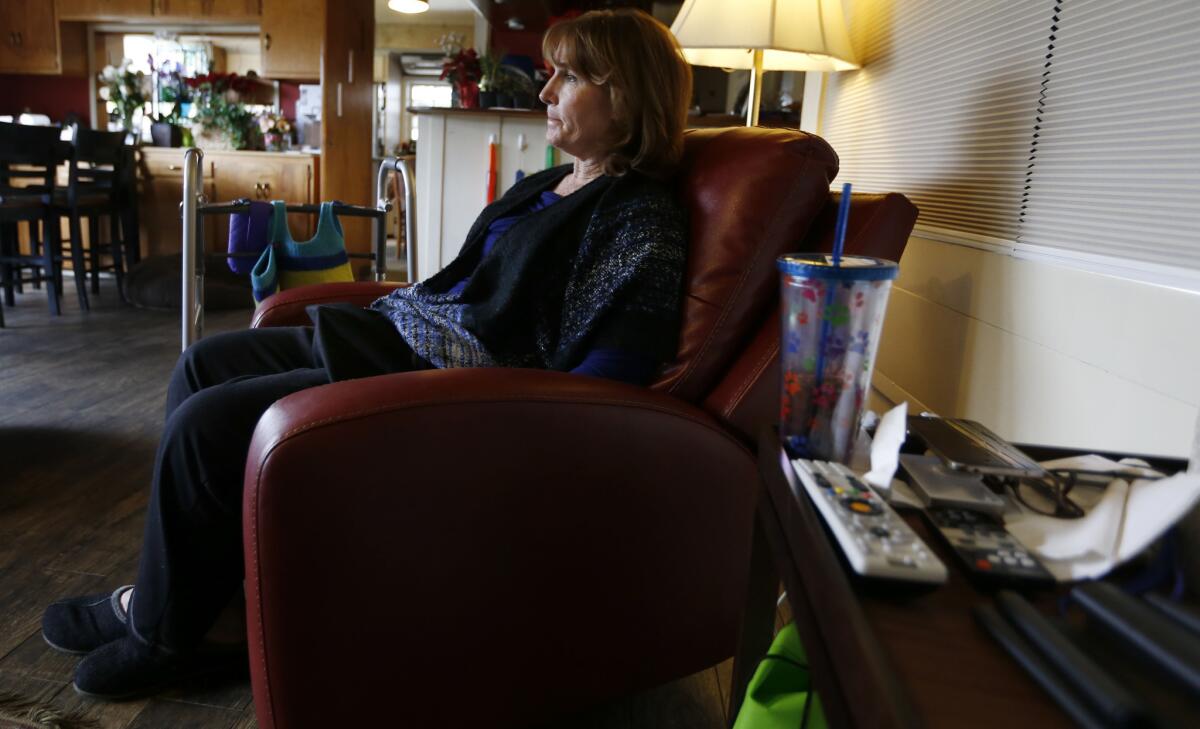
She hates inconveniencing her family.
“That’s my struggle,” she says.
What she won’t do, Swann-Paez says, is let her mind linger too long on the day of the mass killing. With each session of physical therapy, she hopes to get closer to the dream she will allow to invade her mind time and again: a sand-filled summer playing on the beach and walking next to her 11-year-old daughter, Ellie.
Swann-Paez said she struggles with finding the best way to express her gratitude for being alive with her husband and children. She wonders how she can thank all the people, including those she never met, who sent her get-well cards and quilted her blankets.
The shooting didn’t make her a fearful or more cautious person. It showed her “the good,” Swann-Paez says.
She falls silent to keep from crying, then gives in. It’s the only thing that brings her to tears: gratitude.
“That weighs heavily on me,” she says. “I can’t figure out how to tell people how thankful I am.”
This is the hardest part of recovery, she says — much harder than dealing with the shooting itself.
Twitter: @sarahparvini
MORE ON SAN BERNARDINO
FBI searches home of San Bernardino terror gunman’s brother
Apple CEO says helping FBI hack into terrorist’s iPhone would be ‘too dangerous’
More to Read
Sign up for Essential California
The most important California stories and recommendations in your inbox every morning.
You may occasionally receive promotional content from the Los Angeles Times.
